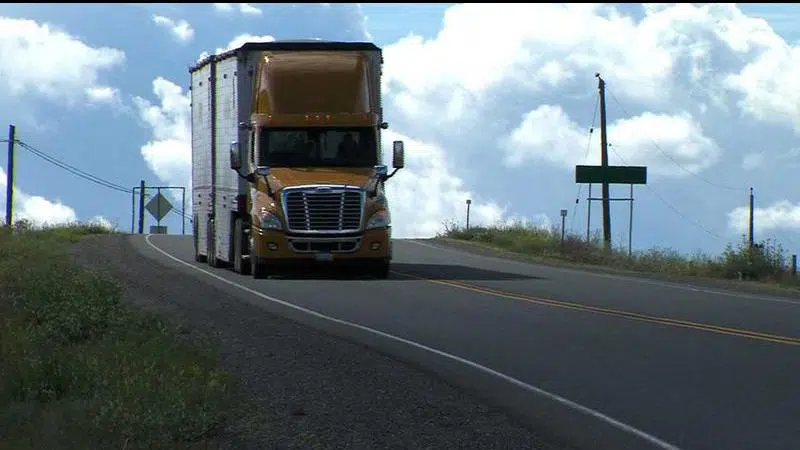
Trucking industry looking towards greener pastures, with fuel efficient technology in its future
KAMLOOPS — Alongside a growing number of electric and non-gas dependent vehicles on the market, BC’s trucking industry is taking steps toward implementing greener, more fuel efficient technology.
While speaking in Kamloops earlier this week, President and CEO of the BC Trucking Association (BCTA), Dave Earle says the BCTA has been working with the provincial government to find ways to have the industry adopt more environmentally conscious technologies.
“There is nobody who wants to be more fuel efficient than a motor carrier, and to explore other opportunities,” Earle says, “We’re just really excited to have a partner with the government to be able to start going down that road.”
Taking the example of how many BC Transit buses have transitioned to a Compressed Natural Gas (CNG) format, Earle says there is not one solution in moving over from traditional diesel fuel use.


